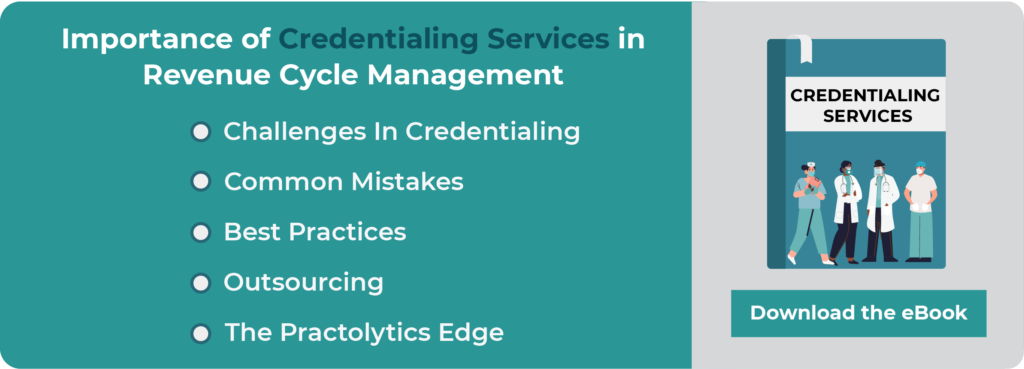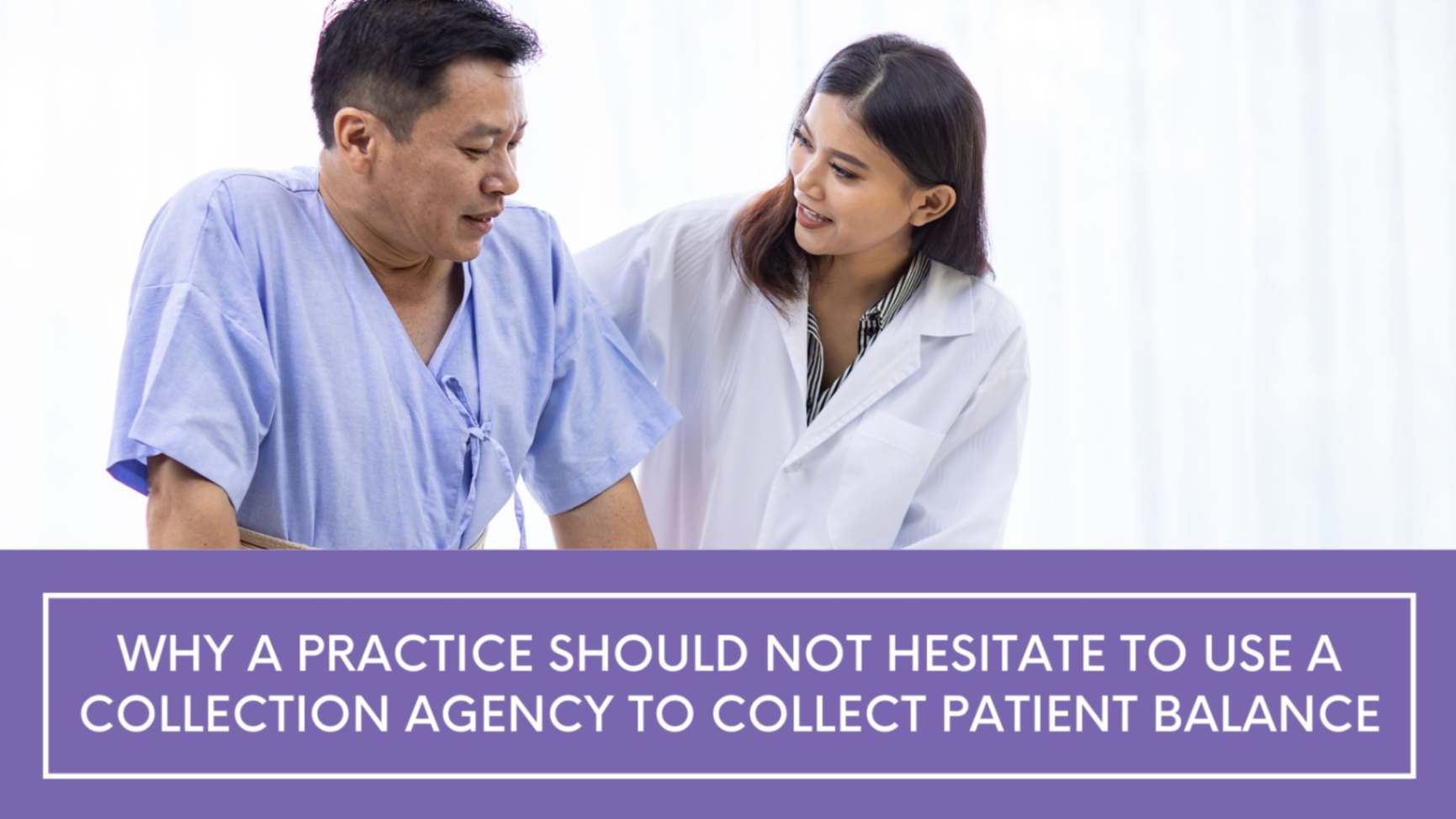Why a Practice Should not Hesitate to Use a Collection Agency to Collect Patient Balances
Patient balances should be collected either at the point of service or on a set due date, not too late after the appointment. The reason for this is that your practice’s financial health and success depend on it. Collection of patient balances can be made easy if your administrative staff is aware of the financial terminology and can have a difficult conversation regarding the details of the payment such as what the patient is paying exactly, and the due dates for payments. Making the payment process easier is another way to ensure patient balances promptly.
Despite all the right steps taken by you, you may face difficulty in the collection of patient balances. This can negatively affect the workflow and cost your service, physically and figuratively. At this point, using a collection agency may be the best choice of option for your service.
Table of Contents
When to involve a collection agency?
A collection agency should be handed over your patient’s file for collection of the balances on file around 90 days to 120 days after the appointment. This number is widely followed by different practices as made apparent by the survey conducted by the Medical Group Management Association or MGMA.
Based on the results of this survey, 43 percent of the healthcare providers handed over patient files to a collection agency 91 days to 120 days after the appointment, 32 percent of healthcare providers waited for over 120 days before handing the patient files over, and around 7 percent reported to have never used a collection agency for the collection of patient balances.
The general rule of thumb is to involve the collections agency 90 days or so after, to avoid further payment delays. You can send two letters to the patient as reminders to pay the bill, around 30 days apart from each other. If the patient hasn’t cleared the payments by then, your service can send a termination letter with a 30-day deadline to pay the bill or a collection agency will be involved. Depending on the legality of it in your state, you can also add the cost of the collection agency to the final bill sent to the patient. You should, however, be careful as it is not legal in every state.
Your service cannot run smoothly without the revenue gained from payments received in form of patient balances and insurance payouts. If your internal collections are not working and you cannot get a response from the patient, it is best to involve a collection agency rather than exhausting your limited resources and time.
How to select an appropriate collection agency?
You are handing over your patient balances to the collection agency to ease the workload on your administrative staff. Failing to choose an appropriate collection agency can increase this stress and even result in legal trouble. You should make sure that the collection agency not only gets you the revenue you are owed but also treats the patients with basic courtesy and has good communication skills.
Any disrespect or lack of basic courtesy by the agency, despite it being a different organization than your healthcare practice, reflects poorly on your service and can cost you your patients. You should be careful not to harm the rapport you have built with your patients for the sake of collections.
The collection agency you choose should be licensed and bonded, as per the law in your state, and follow these laws when collecting patient balances. The agency should abide by the rules set out in the Fair Debt Collection Practices Act (FDCPA) to ensure zero legal liability, on the agency or you as it is a representative of you.
How to avoid liability when sharing information with a collection agency?
You are going to be sharing information about the patient balances and this can be tricky due to the HIPAA laws in place. However, it is not a big problem if you have chosen an appropriate collection agency. It is recommended that you choose a collection agency that not only has the same technology as your practice, to allow for the smoother transmission of data but also is HIPAA compliant to avoid any issues further down the road. The agency you choose should have signed the HIPAA Business Associate Agreement meaning that they are now HIPAA compliant and you can share the necessary patient information with them for the sake of payment balances collection.
Before you send the patient information and accounts to the collection, you should check the files and verify the right accounts are being shared. You should also double-check the balances to make sure there is no mistake in the amount owed.
Wrong balances can leave you and the collection agency open to lawsuits and a myriad of other legal problems. After you have sent the patient accounts to the collection agency, you should ask for an acknowledgment report of sorts to ensure that the agency has uploaded these patients into their system. You should also request regular updates from the collection agency on the account and patient balance collection to ensure that the entire process is being performed in a respectful, courteous, and ethical manner.
ALSO READ – 15 Things Your Practice Must do to Keep Your Patient’s Happy
Talk to Medical Billing Expert Today — Get a Free Demo Now!







